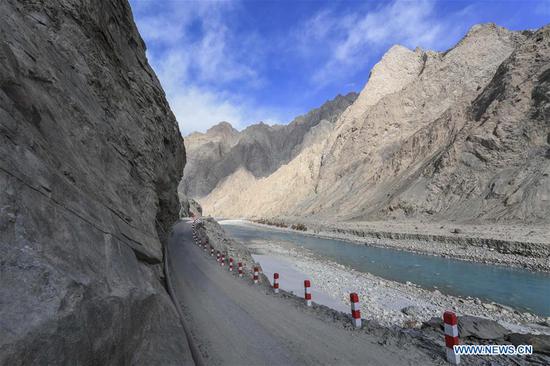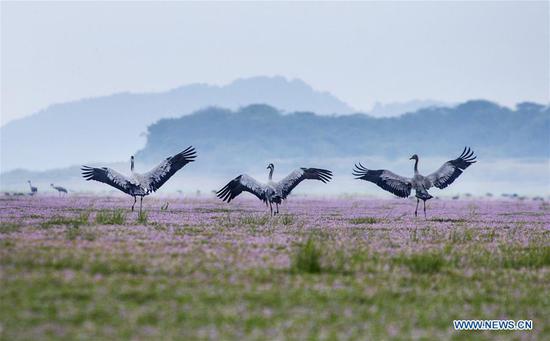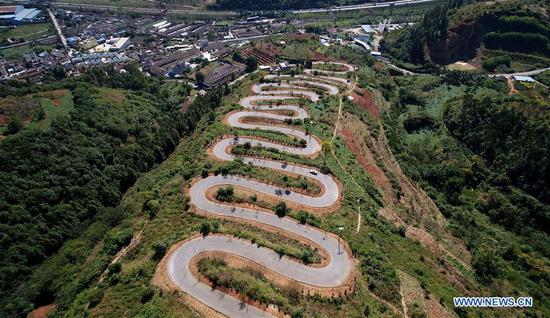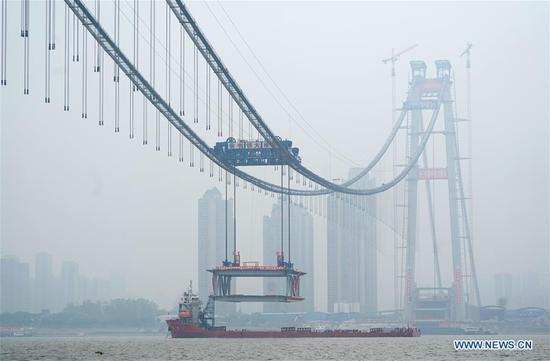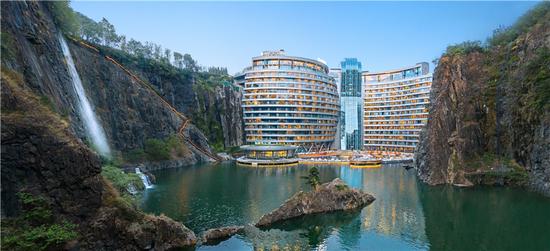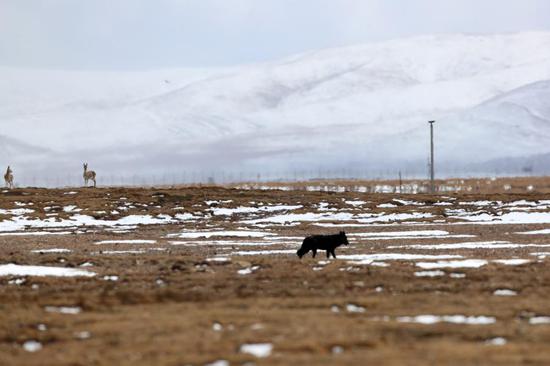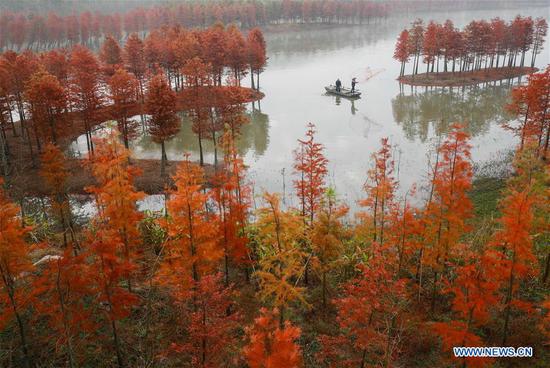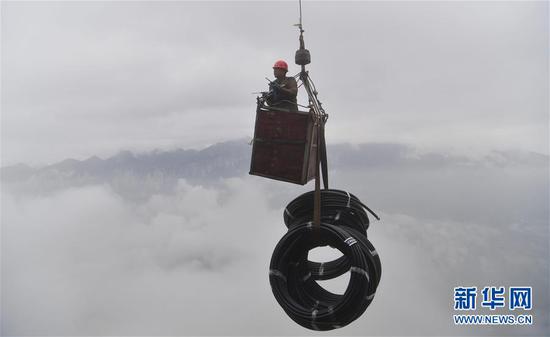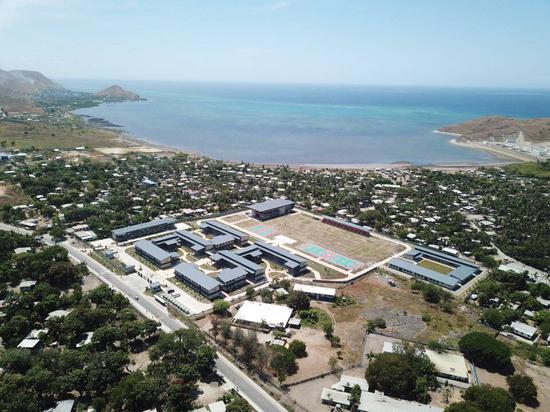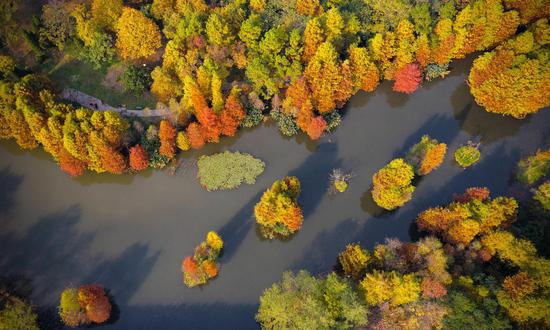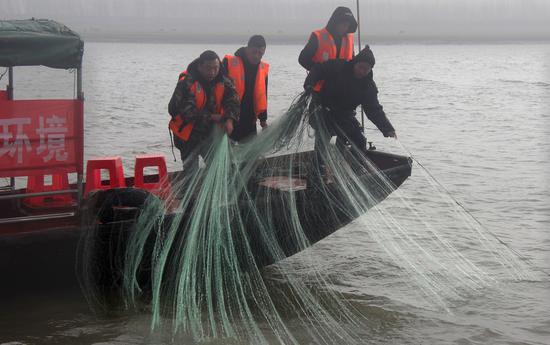
Members of a Yangtze patrol seize fishing nets placed illegally in the river in Jinzhou, Hubei.(Liu Tao/For China Daily)
According to experts, excessive and disorderly development of water control projects has had the "gravest influence" on the waterway's ecology.
On June 19, the National Audit Office issued a report on the ecological environmental protection of the Yangtze River Economic Belt.
The report shows 24,100 small hydropower stations have been built along the streams and tributaries of the Yangtze in 10 provinces, of which 930 were completed before passing an environmental impact assessment. It also indicates that excessive development has caused runoffs to varying degrees in 333 rivers in the Yangtze drainage area.
Runoffs refer to the amount of precipitation on land that ultimately reaches streams often with dissolved or suspended material.
A national project proposed in the 1960s was launched in the '90s to transfer water and thermal power from western inland areas to coastal regions to meet the latter's fast-rising demand for electricity. Many hydropower stations were built in the '90s and early this century in the Yangtze's drainage area.
Cao said many of these power plants were built on second-or third-class tributaries, and the installed capacity at some is only hundreds of kilowatts.
The stations helped to alleviate the energy shortage in the 1980s and '90s. But there are so many of them that they often cause drastic changes to runoffs in the rivers.
"The income from power generation is probably not enough to cover the losses from ecological damage to the waters," Cao said.
Chen Yiyu, a research academician at the Chinese Academy of Sciences who studies aquatic species, told Caixin Magazine, "The problems include construction of water conservancy projects, disconnection of rivers and lakes, over-fishing, water pollution and invasion of alien species.
"The rich aquatic biodiversity of the Yangtze is closely related to the flood plain environment and seasonal flooding on the middle and lower reaches of the river. But human activities have changed all these factors."
Chen said there are more than 50,000 dams, of which 20,000 are hydropower stations, in the drainage basin of the Yangtze, and these have had a grave impact on the aquatic environment.
Cao does not think that fish can survive in the reservoirs that have been built alongside the dams, and that measures that have been taken cannot restore the waterway's ecology.
"It is a waste of time and money. Species cannot be effectively protected at all," he said.

















